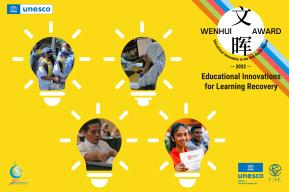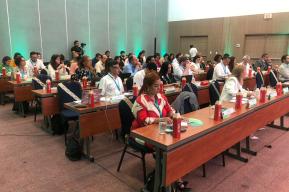News
Recovering lost learning: What can be done quickly and at scale?

The COVID-19 pandemic precipitated a rash of school closures worldwide, which, according to UNESCO, was equivalent to an average of 15 weeks (4 months) in 2020. Unless policy- and decision-makers react quickly and adequately to mitigate the resulting learning losses, over 100 million learners may fall below the minimum proficiency level in reading, exacerbating learning disparities.
To avoid such a scenario, national education systems have deployed numerous measures with mixed results. Their experience and lessons learnt can provide useful tips for the design and implementation of context specific strategies and modalities. Yet, the scale and depth of the impact induced by the current crisis compel decision-makers to carefully weigh and select measures that should be deployed by step and in order of scale over time.
UNESCO‘s latest issue paper on catch-up learning programmes provides a preliminary analysis of measures adopted by countries and outlines promising strategies for planning and implementing programmes for recovering lost learning. Preliminary findings provide a good knowledge base for further reflection and deliberation on catch-up learning programmes, recovery from lost learning and resilience-building geared at system strengthening.
Governments, schools and teachers will need to consider three interrelated dimensions in their local context: The curricular approach (e.g., whether the curriculum will be condensed to focus on core knowledge and skills); the additional support required (e.g., tutoring for struggling students); and the practical measures needed to implement the adopted approach (e.g. adjusting the school calendar and timetable in order to increase the in-person contact time, organizing smaller groups of students in the class). Accordingly, they will have different roles and responsibilities in implementing the selected actions.
Moving forward, key action areas are:
- Assess learning needs by determining skills and knowledge gaps based on the implemented or adjusted curriculum. Both continuous formative and summative assessments are essential.
- Adjust pedagogy to make teaching more adaptive to the individual needs and abilities of students. The curriculum may need to be condensed to reflect core principles and to teach essential skills in the limited time available.
- Prioritize, train and support teachers who are the backbone of any educational system. Any attempt to introduce new technologies or techniques into the classroom must be accompanied by teacher training in adaptive learning strategies, learning assessment and digital skills.
- Emphasize social-emotional learning by recognizing the mental health needs of students and teachers. Classroom programmes should integrate a mental health component such as mindfulness and foster healthy interpersonal relationships among students and teachers.
- Ensure inclusion and gender equality, especially for some 11 million girls, who might not return to school after the pandemic, and other disadvantaged or vulnerable groups who were hit hardest by the COVID-19 crisis. Policy-makers should reduce gender discrimination in schools, push for girls to return to school post pandemic, promote women’s leadership in recovery planning, and consider the specific needs of vulnerable learners in and outside of the classroom.
UNESCO join forces with UNICEF and the World Bank to support countries in bringing all children safely back to school; ensuring that students receive effective remedial learning and support to recover learning losses and improve overall welfare, and teachers are prepared and supported to meet their learning needs as prioritized in Mission: Recovering Education in 2021.
- Consult all UNESCO’s COVID-19 Education issue notes.






